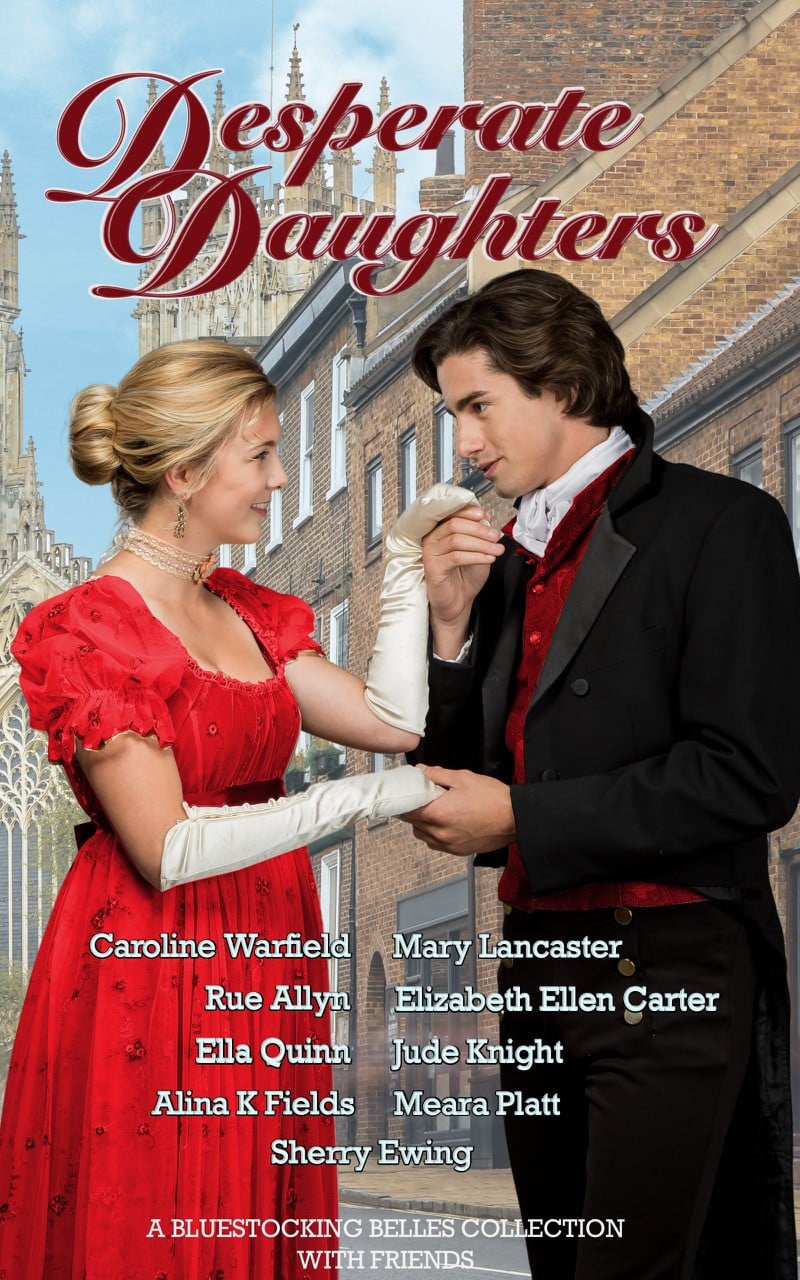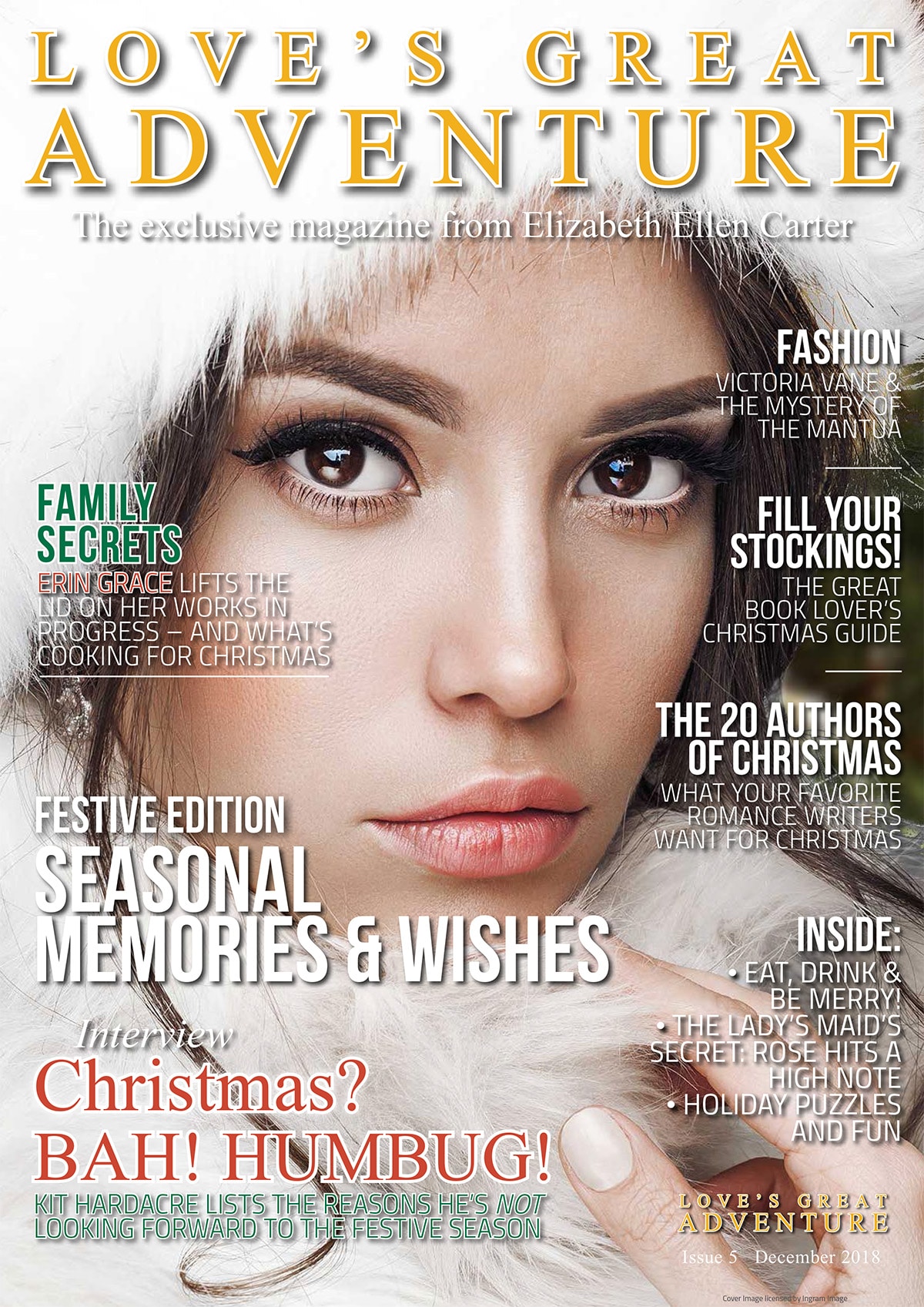Rue Allyn writes historical and contemporary romances and I was looking forward to talking to her about that and her latest book on my YouTube channel as part of my Conversations series.
Our chat was a lot of fun, but, unfortunately, our internet connection wasn’t too good, and my producer advised the recording couldn’t be used because the sound quality was so low. Instead, here’s a transcript of the Zoom interview instead.
Elizabeth: Hi Rue, tell me how you got into writing. I read on your biography that you’ve always loved books and decided that writing was just as much fun if not more fun than actually reading.
Rue: My adoptive Swedish grandfather would tell me stories. I would sit on his knee and listen. Then, from about the age of two, my mother, who was a professor, decided I should start to read, so I started to read and by the age of seven I was writing poems. My poem about the Cloud Horse is one I’ll never forget but everybody else probably wants to forget it!
I spent a lot of years in school studying literature and books and stuff like that, and I finally discovered after writing a thesis that I’d rather – after something like 32 odd years of being educated – that I’d rather have fun!
Elizabeth: I think that’s always the way – we write stories to tell ourselves stories. That’s the way it starts. Writing them down and re-reading them and changing them and growing in confidence until we say ‘Right – this is this is ready for publishing’.
So, Rue, what was your first title?
Rue: Well, my first published title was something called The Cowboy and the Caddy. That was a vintage Cadillac, not a golf caddy, and we had problems with that so it’s now titled Her Cadillac Cowboy.
I think I signed the contract in 1999 and it was published in 2000. You can find book on Kindle Unlimited.
Elizabeth: What changes you have seen in the writing and publishing industry over the past 22 years?
Rue: Well, 1999 feels like it’s even longer than 22 years ago. It was the beginning of e-publishing and it wasn’t very popular to start with. It’s fascinating to me that every new development is less well received than the previous new development by the professionals who have to deal with it – not necessarily by the public – but it was fascinating for me to watch that.
As online publishing became more common and e-readers became more easy to handle then came other kinds of things like Vellum and Kindle Unlimited that you know nobody wanted anything to do with until after they saw someone else had made a lot of money with it.
Elizabeth: There is the struggle of being the early adopter because first of all you’ve got to actually grasp what this thing is. I remember somebody showing me Facebook back in 2008 and I was sort of ‘OK, what is this is this?’ It was a website and also a message board, but like none I’d seen before. And you played games on it. It was strange then, but now it’s like second nature.
It’s really interesting. All of us above the age of, say, 20 have come in as sort of digital immigrants where we’ve moved into this land of technology and have to cope with it, whereas the younger generation haven’t known anything different.
Rue: I know what you mean. We had that same problem, you know, those of us who were the television generation, or at least I was. And the new thing for my mother when she was younger was something called a crystal set. My grandfather had one, it was the precursor to radios, and that’s what she listened to when she was a teenager.
So now, me, I’m sitting here going ‘Okay, this is actually normal evolution the way things are new and different.’ It’s fascinating, it really is.
Elizabeth: The rate of technological change from the industrial revolution to today was fast and the cycles of change have become even faster. I think perhaps in many respects maybe that’s one of the reasons why the Regency era resonates with so many people. It was an era on the cusp of this massive change that we saw in the Victorian and Edwardian eras, and into the 20th century to now. What do you think to that idea?
Rue: I think you are as much right as – well, I don’t want to say reverse… maybe obverse, that the Regency era was also the end of a particular kind of lifestyle, a particular way of living with a particular lack of technology, if you will. And, as you said, on the cusp of change. It had kind of both elements to it.
It’s one of the things I love about writing in the Medieval period, in the Regency period, and in the American West – you know, that 15 years between the end of the civil war and 1880 – the entire culture of the US changed in that time.
Elizabeth: Yes, I think about all of the most popular cowboy movies and they’re set in that era of change when the country was getting back together after the civil war. There was the expansion westward and the consolidation of the United States as we know it today. It’s a fascinating topic to explore.
Rue: I’ll let you into one of my guilty secrets. Want to know my favorite cowboy movie? Quigley Down Under. Tom Selleck was fantastic, Alan Rickman was the nastiest villain I’ve ever seen, and I really enjoyed it.
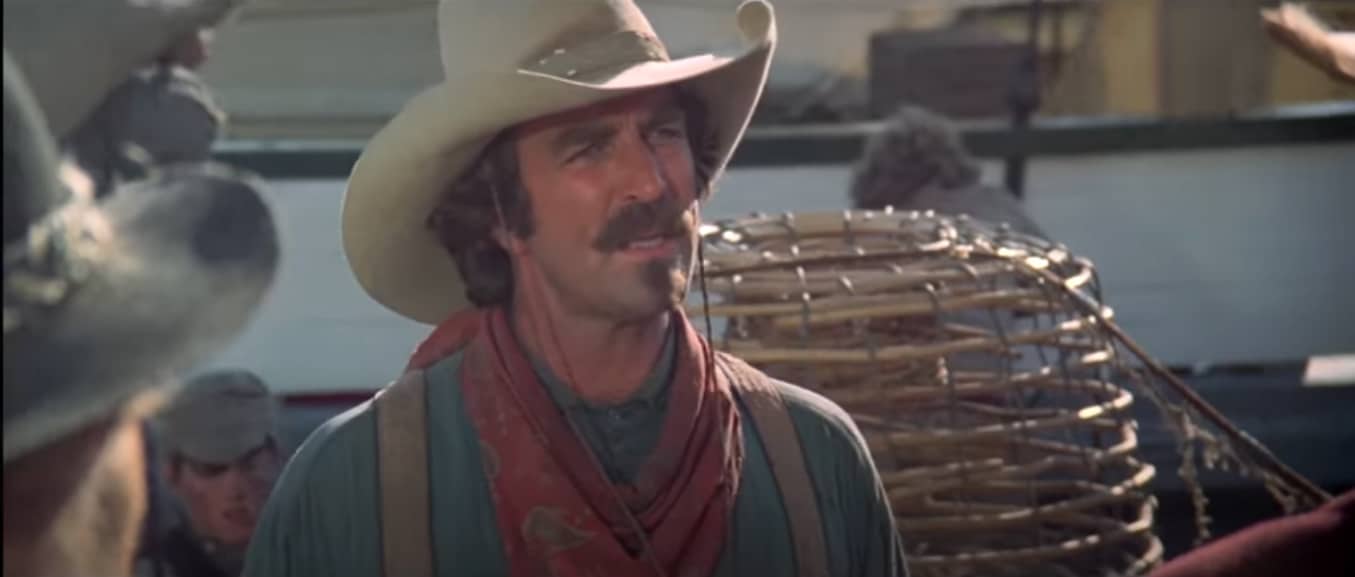
It came out at a time when I was older so it was kind of like a good memory for me. You know, I’m also a big fan of the ’30s and ’40s and ’50s movies. One of my John Wayne favorites was The Man Who Shot Liberty Valance with John Wayne and Lee Marvin and Jimmy Stewart.
Elizabeth: I adore Jimmy Stewart. He had a fascinating background. He suffered PTSD after the Second World War, and his experience made him question whether he could go back to acting. It was Lionel Barrymore who persuaded him to take the role of George Bailey in It’s A Wonderful Life, and you can see the emotion in Stewart when Bailey is at the point where he’s contemplating suicide. The emotion just pours out of him. It’s a film that I rewatch every year at Christmas, because that’s when it’s set.
Rue: Oh, for sure, you know you’ve got to watch your Christmas movies!
Elizabeth: Another one of my favorites is technically a New Year’s movie but it’s another one with Jimmy Stewart. It’s the second film in The Thin Man series and Stewart plays the urbane young man who turns out to actually be the villain.
I don’t think The Thin Man films get the airing they deserve. I just love them. They inspired the TV series’ MacMillan and Wife, and Hart to Hart.
Rue: One of the reasons we love them is you can see the actors are enjoying themselves. They’re having fun and I always like it when I know that the author or the actor or the director of the thing that they are creating enjoyed doing it because it kind of enhances my fun.
Elizabeth: I think as an author when you’re having fun with your characters – even if the situation they’re in isn’t fun – it’s almost like you’ve hit that magic point where you go ‘Oh yeah, this is really working.’ and your readers pick up on that as well.
Rue: I believe so, I really do. I’ve read romances by some of my favorite authors that are just laugh a minute, even though some of the action going on is not always really funny, but it’s just the way the way the thing is written.
Elizabeth: It’s been great working with all of the Bluestocking Belles on the Desperate Daughters anthology and that was fun to write. Fun to read everybody else’s story too.
Rue: Susanna Ellis introduced me to the Bluestocking Belles, and they were kind enough to invite me to find the group and I said yes. That’s one of the smartest things I’ve done in my writing career.
Elizabeth: There’s something really nice about being part of a group of authors whose work you respect, but you’re also friends. It goes to what we were talking about, being able tell that the authors were having fun with their writing. That really does come through with this group.
Rue: I do believe the Bluestocking Belles are a little different to many of the author groups who put out anthologies. There are some of them who, like us, have the same consistent members, plus one or two others from time to time, but most of them are just a collage of people who said ‘Oh, let’s get together and do a story collection.’
(The way we work) takes a whole lot more thought than simply saying ‘I’ll write this story and you’ll write that.’ We can credit Jude Knight, I think, and Caroline Warfield for a lot of the good things that come out of the Bluestocking Belles. They’re invaluable friend and priceless examples of authors.
I’m going to have tremendous fun promoting Desperate Daughters with Caroline and Sherry Ewing when I get to the Historical Romance Retreat in September.
Elizabeth: I can’t tell you how insanely jealous I am that I can’t get to HRR this year. I had so much fun in 2019. I’m gutted that I can’t make it this year, but I’m going to make it my mission to get to the next one. The one in 2019 was at Riverside at the historic Mission Inn which was an incredible place. It was like staying at a museum. Thank goodness for eccentrics like the founder of the Mission Inn because you need you need someone just a little bit out there to really showcase how wonderful and how unique the world is.
Rue: Absolutely. One of the greatest resources in the US is in California, it’s called the Huntington Library. Henry Huntington was very rich, he was very eccentric, and he gave some tremendous amount of money to endow this library that is among the most highly regarded libraries of medieval and British literature in the world.
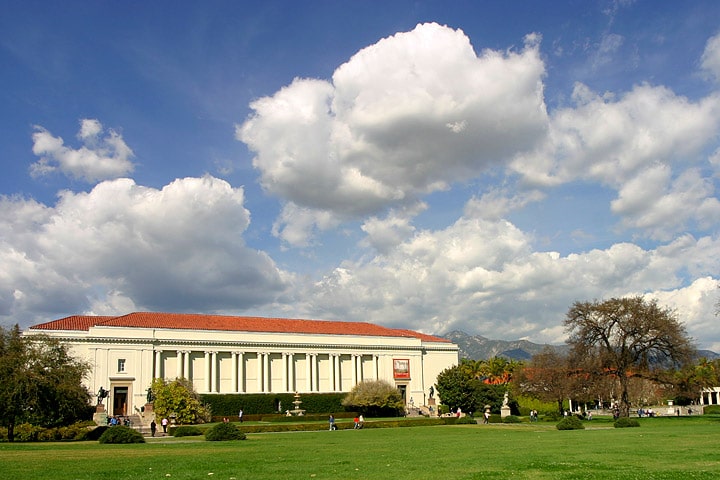
Image: Aaron Logan (CCA 1.0 Generic)
Elizabeth: We had the pleasure of going to the Getty Museum in 2019. It was incredible to be able to look at these magnificent artworks up as close to them as the artist was creating it. It’s something I’ll never forget. It was a real privilege.
Rue: I am a Michigan native and I sometimes like to brag about Detroit. I know nobody wants to brag about Detroit because there’s lots of trouble there, but there are some outstanding things in Detroit that very few people know about. Are you aware of a sculptor called Rodin?
Elizabeth: Yes.
Rue: Right. He’s got this famous bronze called The Thinker where this guy’s sitting down, and he’s just looking at the ground, chin on his hands, and he’s thinking. There’s a casting of it sits right outside of the entrance to the Detroit Institute Of Art.
Elizabeth: Wow!
Rue: So I’m like, okay I know we aren’t just famous for (the boxer) Joe Louis, whose statue’s somewhere else in Detroit, we are famous for the Detroit Institute Of Art too which has got amazing pieces of artwork in it. And not just Detroit, but next door in Dearborn there’s the Henry Ford Museum, which is actually also part of a thing called Greenfield Village. Greenfield Village began as a place for Thomas Edison’s laboratory. Ford bought it from Thomas Edison and had it shipped from New Jersey to Michigan, put it in this this corn field and started a historic village. The village now has a stagecoach stop, it has doctors houses and pharmacies and all sorts of Americana. Well, you know now, some folks argue about Mr Ford being kind of, you know, arbitrary, but when you have his kind of money I guess you can do that.
Elizabeth: He definitely earned his place in history. The Ford car is ubiquitous around around the world, and, for all his other sins, it’s said he did pay his workers a decent wage – if only because he wanted them to be able to afford his cars!
Rue: Our friends Caroline Warfield and Cerise De Land have both written World War One romances. This is an up-and-coming genre in romance because it’s ‘not old enough’ though it’s history, but the reason I mention it is (because of another Michigan location called) Willow Run where Mr Ford built his mile-long factory that was used to create bombers for World War Two. Rosie the Riveter worked there, that’s where she came from. You know we’re all familiar with Rosie and it’s amazing to me that something if you think of it so recent as the 1940s is further grist for our historical romance mill.
Elizabeth: I think I mentioned to Caroline when we spoke that one of the things that I have on my never-ending list of stories to write is a World War Two romance set just up the road from where I live. I live on the Gold Coast (Australia) and 35 miles to the north is the capital city of Queensland called Brisbane which was Macarthur’s headquarters in the Pacific and the city where I live is a resort town and it was the designated R&R spot for allied troops during the World War Two.
You’re right that the Second World War is going to be a really interesting aspect of historical story telling in the future. I think it’s important to explore in literature because I think it actually preserves the full breadth of what happened. With the distance of time I think we risk losing the subtleties and the nuance and the complexities of history, simplifying it into almost a cartoonish state. There’s a younger generation that sees Hitler as a sort of Bond villain, whereas real history is nuanced and complicated with lots of moving parts. As they say, what started WW2? World War One.
I think fiction can play a really important role in allowing people to walk in the shoes of people who were there at the time.
Rue: Did you did you happen to see a series called The Man In The High Castle? It was an alternative history, if you will, and it is kind of fascinating. You really wanted to hate the guy who was the villain, but you couldn’t. The people who wrote the show did a really good job of humanizing him, and you and I both know that’s the best kind of villain, somebody who is despicable even though you like him.
Elizabeth: That’s it – the villain is the hero in his own story.
Rue: Absolutely, he never sees himself as a villain, so you know I get that, and he gets baffled by people who do see him as a villain.
Elizabeth: There was a British TV comedy series in the 1980s called ’Allo, ’Allo set in occupied France, and a German officer turns to another and asks ‘Are we the bad guys?’
Rue (laughing): That’s a perfect line, it really is .
Elizabeth: There’re also cast members of Hogan’s Heroes who either fled Germany or were prisoners of war, but you get people who know the horrors of war first hand and, with clever writing and the passage of time, and a real intention, you can find humor in it. And I think humor can reveal truths that we don’t always that we don’t always get to experience in dramatic retelling.
Rue: Absolutely, and you probably know which movie inspired that series, it was Stalag 17 which was a very dark movie, and also The Great Escape which was a very sad story if you see it out to the end but it was also full of hope and humor too, so I think in combination that was really good inspiration for Hogan’s Heroes.
Elizabeth: Changing the subject, what are you working on at the moment? What’s next for you?
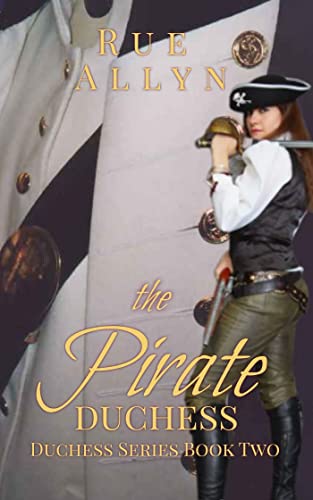
Rue: I have a new book. It’s titled The Pirate Duchess. It was originally supposed to be titled something else, but that got changed and she became a pirate. It’s in my Duchess series. The first book is The French Duchess. That was started when I was actually traditionally published with Crimson Romance through Simon and Schuster. My editor said to me ‘Okay. you’re looking for a new topic to write on. You’ve ended one series, do you want to start something else? Dukes are really popular right now.’
And I thought ‘Oh my god – another duke. There are like 10 million more fictional dukes than there are real ones.
So I said ‘How about some duchesses?’ I made my first a duchess in her own right which doesn’t happen very often, but it has happened, so you know it’s possible. And she got called French not because she was French but because she was accused of spying for the French.
The hero’s very tough, he’s in the British army, and he learns of this plot she’s involved in that he thinks is a plot to assassinate one of the British royals. In actuality, the plot is to assassinate Napoleon. And her job is to try stop it because the people who are trying to kill Napoleon actually want to make a martyr out of him.
I have to tell you of a little bit of history that absolutely inspired me. I was looking for background material and I stumbled across Major Campbell’s record of his part in the war with Napoleon. During the time in Elba, when you know napoleon was supposed to be imprisoned, but he was basically having a vacation, Campbell was one of the authorities who were supposed to be keeping an eye on Napoleon he was almost never there and when he was it was more of a party atmosphere, like Napoleon was ‘Let’s go down and get some wine and some girls and have a good time’, but in his journal he wrote about the three or four days in April of 1814 when Napoleon abdicated for the first time.
His army was defeated in Paris, he was in Fontainebleau, and he knew he had to abdicate, had to resign. He was basically surrounded and, in that four days, Campbell’s record says Napoleon’s assistants and servants were claiming that Napoleon was sick. But there’s some suggestion in other records that Campbell quotes that say he was depressed. He was fighting depression and trying to commit suicide, but nobody really knows whether he was sick or trying to commit suicide – or as my author’s imagination said somebody’s trying to poison him.
So not all of that book came from this one paragraph in some guy’s biographical journal, but the historical research trick is wonderful. I love it, and that is the thing that brings authors joy. That’s what we were talking about earlier, when you can see an author enjoying themselves. Usually for historical romance authors it’s because of the fascinating historical tidbit that we found, and we go ‘Oh yeah! What if, and what if, and what if then..?’ That’s what happened to me, and my imagination just went wild, it really did!
Buy/Pre-Order Desperate Daughters
Buy The Pirate Duchess by Rue Allyn
